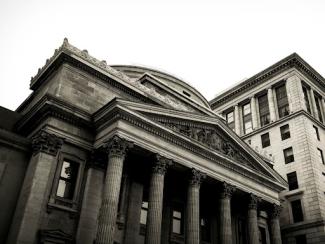
The dust settled over America as post-Civil War Reconstruction began. The nearly four million previously enslaved were free. But as hardwon as their freedom was, it came with needs. The Freedman's Bureau and the Freedman's Savings Bank were created to help see to those needs.
The government had thousands of Black soldiers on their payroll and millions of people learning how to navigate being free for the first time. Thus began the campaign to encourage the use of the Freedman's Bureau and its bank.
What started as an attempt to help the formerly enslaved became an institution laden with corruption. As Black people deposited their meager earnings, the bank began lending almost exclusively to white customers while using Black dollars as collateral.
Even after replacing most of the management with Black leadership, the bank still collapsed and took the equivalent of $22 million in Black savings with it. While this was the first significant blow to Black confidence in banks, it wouldn't be the last.
Since the inception of the Freedman's Savings Bank, racist policies and practices have long left a bitter taste in the mouths of the Black community. Many of us roll into banks, unaware of the turmoil that our ancestors have endured with banking. Knowing the genesis of their mistrust can protect us from falling for similar empty promises.